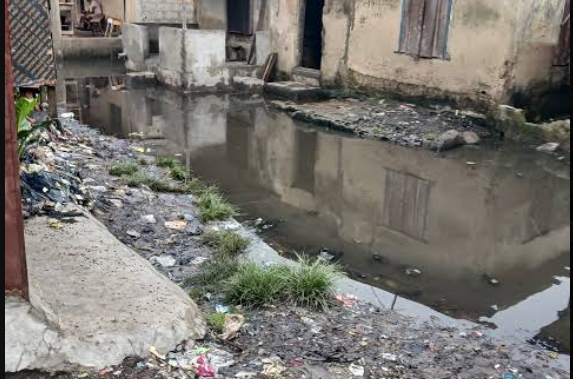As Lagos continues to grapple with environmental challenges linked to rapid urbanisation, residents across the state have raised alarm over the city’s deteriorating air quality largely caused by indiscriminate waste burning, vehicle emissions, and poor sanitation practices.
In separate interviews with our source, residents from Ikorodu to Alagbado described how fumes from refuse fires, exhaust pipes, and industrial discharges now hang constantly in the air, posing serious health risks and environmental hazards.
A civil servant in Ikorodu, Mrs Itunu Dada, said that most residents prefer to burn waste instead of engaging licensed waste collectors. “When you go outside, you see smoke everywhere.
It causes cough, chest pain, and irritation. Around the markets, heaps of refuse on road medians emit offensive odours. It’s terrible,” she said.
Dada urged the Lagos State Government to enforce stricter sanitation laws and increase the frequency of waste evacuation.
“Those clearing drains often leave waste piled up for weeks. When it rains, it all washes back into the drainage. We need a task force to stop illegal dumping and burning,” she added.
In Alimosho, Mrs Stella Lawrence, a teacher, said air pollution has become part of daily life. “Many commercial vehicles emit thick black fumes because they’re not roadworthy. Generator use also makes it worse. The government should phase out unfit vehicles and improve power supply to reduce generator dependence,” she said.
Similarly, Miss Chioma Ndukwe, a communications expert in Okota, said the air in densely populated areas like Oshodi has become unbearable.
“Walking through Oshodi Market feels like choking — between exhaust fumes, burning waste, and poor sanitation, breathing clean air is a struggle,” she noted.
Ndukwe called for stricter vehicle emission checks, industrial regulation, and better public sanitation. “Everyone deserves to breathe clean air in Lagos,” she said.
In Lekki, Mr Bruno Ajede, a businessman, said though the area is relatively cleaner, fumes from vehicles remain a major issue.
“Air pollution causes respiratory problems like asthma. It’s a serious public health threat,” he said.
Meanwhile, Mr Ajibola Ajayi, a marketer in Alagbado, said vehicular pollution in his community remains unchecked. “Many cars here emit heavy smoke, yet no one monitors them,” he complained.
Reacting, Mr Friday Oku, President of the Association of Wastepickers of Lagos, linked the problem to Nigeria’s dependence on fossil fuels.
“Our continued reliance on petrol and diesel is harming both health and the environment. We must embrace renewable energy and cleaner alternatives like CNG,” he said.
Oku criticised inconsistent government policies, including the recent ban on “cart pushers,” saying such actions worsen emissions. “Replacing carts with tricycles only adds to pollution. It shows poor policy direction,” he stated.
The Lagos State Government, through the Ministry of the Environment and Water Resources, said it remains committed to improving air quality under its Blue and Green Economy Initiative and Air Quality Monitoring Network.
The state has also deployed mobile sensors to monitor pollution levels and enforce compliance among industries and transport operators.
However, environmental advocates argue that without stronger law enforcement and public behavioural change, Lagos’ ambition for clean air will remain far from reality.
Source: News Agency of Nigeria (NAN)



